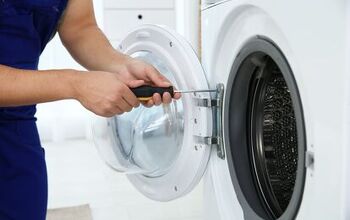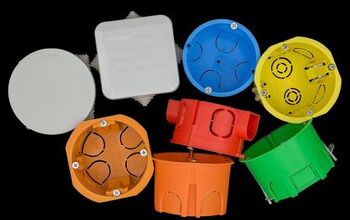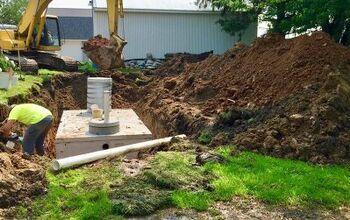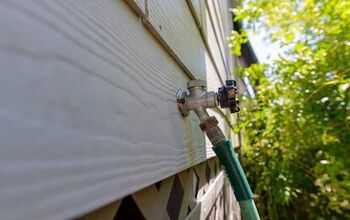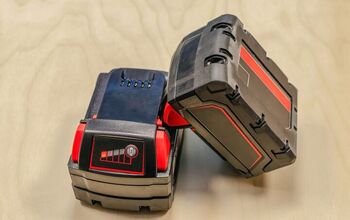Nine Ways You Can Tell You Have Rodents In The House

Rodents are the last pests you want inside your home. Yet these burrowing and disease-carrying animals can find their way inside your home even when you are diligent at keeping your home sealed shut. If you suspect you have uninvited furry guests, you should look for all the signs that suggest rodents are living in your home.
Some of the most common signs there are rodents in your home include fecal droppings and urine stains in their burrowing locations and near food sources. Holes and claw marks in the wall and gnawed food and containers indicate a potential rodent infestation. If you have itchy eyes or other unexplained allergies, and your pet is acting strange, rodents may be hiding in your home.
No one wants mice or rats burrowing inside their home. These pests sometimes carry diseases that can get you and your entire family sick. They can also cause severe allergies, eat your food, and slowly destroy your house. If you suspect rodents are hiding in your home, keep reading. Below is a list of all the warning signs of a rodent problem, as well as steps to take to get rid of them.
Nine Signs That You Have Rodents Inside Your Home
1. You See Small Droppings
One of the telltale signs that you have rodents in the home is the small dark pellets these pests leave behind. Rodents leave droppings that are a bit larger than grains of cooked rice. The longer rodents live in your home, the more droppings they leave behind.
If you see rodent droppings, you almost certainly have a rodent issue that must be addressed immediately.
2. You Have New Allergies In The Home
Rats and mice can cause some instant and severe allergies in many people. Their fur and urine can cause itching, burning eyes, and even some respiratory issues. If you notice any new allergies that you have never had in the home before, rodents may be to blame.
If you notice allergies when you are in your home, start with a deep clean and see if you see any other signs of rodents while you clean.
3. Claw Marks And Holes In Walls And Entryways
Sometimes rodents sneak in when doors are open, or through a small and unnoticeable gap in a mesh screen. In other instances, they claw and force their way in. If you see small holes and claws or chew marks in window screens or on walls that didn’t exist before, this could mean rodents.
In addition to sealing up the hole immediately to keep other outside pests out, you should look around for more signs of rodents.
4. Chewed Up Food And Food Containers
Rodents come into the home for shelter and food. If you have rodents living in your home, there is a very good chance they have attacked your pantry or kitchen pantry alternative. If you suspect there are rodents in the home, you should head to where you store your dry goods.
Rats tend to love finding their way into flour, oats, and other shelf-stable items that are stored in paper or cardboard containers. They may also nibble on any fruit you leave outside the fridge.
5. Shredded Paper, Twigs And Other Nesting Materials
When rodents enter your home, they usually plan on staying a while. Therefore, after finding what they deem a safe hiding spot, they begin to burrow. If you notice leaves or other outdoor scraps, or shreds of paper and pillow stuffing, there’s a chance a rat or mouse may be to blame.
6. Hearing Scratching And Rustling Noises At Night
Rodents are nocturnal and also try their best to go undetected. They do, however, need to move around to collect food and supplies. This movement usually occurs at night and creates some sounds.
If you notice scratching or rustling sounds that are out of the ordinary, it may be rodents. Rodents also find their way into your home through vents and the attic, which means you may even hear rodents moving around in the walls.
7. Funky And Stale Smells In Closets And Cabinets
It should come as no surprise that after urinating and leaving droppings in your home for some time, your home will eventually smell different. If you notice a stale or funky odor, especially in a closet or cabinet, then it might mean rodents. If you notice a strange smell, investigate further to see if there other signs of rats or mice.
8. Urine Stains On Curtains And Clothing
Droppings aren’t the only mess that rodents leave behind. They also urinate in your home. Sometimes this goes unnoticed, and for the most part, will evaporate. In other cases, it leaves stains on carpets, clothing, and even curtains. If you notice dark yellow to brownish stains on clothing, curtains, or carpet, then it may be from rodents in the home.
9. Your Dog Or Cat Is Acting Strange
If you have a dog or cat, there is a very good chance they will know there are rodents in the house before you do. These animals may even be able to catch one or two. Even if they can’t find their exact location, they will certainly sniff and look around the areas where these pests have been.
If your cat or dog is more interested in closets and cabinets than usual and is frequently sniffing in particular areas, then it may be a sign of rodents.
Five Things To Do When You Suspect Rodents In The Home
1. Set Traps
If you notice one or more of the signs listed above, then the first step you should take is to set traps. There are various types of traps available and they vary in the level of harm they inflict on the animals.
If you catch a rat, mouse, or other rodent, don’t stop setting the traps. Rodents sometimes live solitary lives, but if you catch one, there’s a good chance there’s more living in your home. Set traps until you stop catching rodents.
2. Seal Entrances
If you find small holes in your home, seal them up. Then go further and seal up any cracks you notice in entryways or the foundation. Cover vents with mesh, and ensure your screens have no holes in them. This will help prevent future rodent issues.
3. Deep Clean Your Home
If rodents are burrowing in your home, then they have made a mess of your home, even if you can’t see it. You should deep clean your entire home once you know rodents have been there. This will help you identify and remove any burrowing locations.
It will also rid your home of rodent excretion and hair, which may have caused your allergies and can cause illness.
4. Secure All Food
Rodents are less likely to stick around if you remove their food source. If you notice signs of these pests, take extra precautions to secure all food. Store your shelf-stable items like pasta, sugar, rice, grains, and flour in airtight plastic containers. Don’t leave any food out, including fruits and vegetables.
5. Call In A Professional
If you can’t figure out how rodents get into your home, you can’t trap them all, or can’t find where they burrow, then it’s time to call in a professional. Professional rodent and pest removal services can ensure (and often guarantee) that your rodent problem will be gone for good.
Wrapping Up Ways You Can Tell You Have Rodents
Wild rodents belong outside, but sometimes they find their way into homes, where temperatures are pleasant, and food is plentiful. If you suspect there may be rodents in your home but aren’t certain, then check for warning signs. Droppings, urine stains, and scratch marks or holes are all indications of a rodent problem. If you find burrowing materials or notice holes and chew marks in your pantry food items, mice or rats may be at fault.
When you notice these signs, set traps, deep clean your home, and secure all your food items. If you aren’t sure whether or not you have rid your home of rodents, call in a professional to do a thorough sweep and pest removal.
Related Guides:
- Should My Landlord Pay For Pest Control?
- I Hear Scratching In My Walls
- Does Vinegar Repel Mice? (Find Out Now!)

Tom Gaffey is an expert writer who currently resides in Washington D.C. Tom has a passion for real estate and home improvement writing, as well as travel and lifestyle writing. He lived the last twelve years in Hawaii where he worked closely with luxury resorts and event planners, mastering his knowledge of aesthetics and luxury products. This is where he found his passion for home improvement and a keen interest in DIY projects. Currently, Tom resides in Washington D.C, and also working on his debut fiction novel.
More by Tom Gaffey













![Finishing Basement Without Permit [Is It Really Illegal?]](https://cdn-fastly.upgradedhome.com/media/2023/07/31/9070078/finishing-basement-without-permit-is-it-really-illegal.jpg?size=350x220)
![10 Best Electric Pressure Washers – [2022 Reviews & Guide]](https://cdn-fastly.upgradedhome.com/media/2023/07/31/9070600/10-best-electric-pressure-washers-2022-reviews-guide.jpg?size=350x220)




